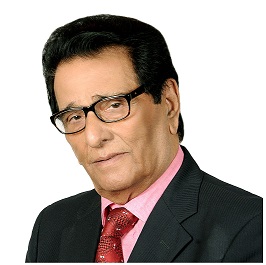S. S. A. Zaidi
Retd Banker, Author and Motivational speaker
Training and Development Consultant
0091-9987644300
Email:Saiyidzaidi@gmail.com
Managers
in an organisation have positions of authority.
This authority they draw from the Organisation Structure. Without there being this structure, managers
will be powerless and the organisation directionless. All the
members in the organisation will grope in the dark not knowing what course to
take to reach the goal. They will work
in uncertainty. Managers will not be
able to direct the employees to do the required functions. Employees will have no respect for their
seniors. They will only decide what they should
do and they will be able to get away with it. Morale and productivity will show declining
trend.
Organisational
Structure therefore assumes importance.
It is the Organisational Structure that provides direction and gives
support to the Managers. This Structure
is not just a chart showing the positions /
designations in the organisations.
It describes the organizational web of duties, authority,
responsibilities and accountability. It
portrays relationships and primarily focuses on the powers / authorities vested
in those positions. The whole activity
of the organisation is controlled, guided and governed by this structure. Hence it is necessary that Managers protect
this structure. It is in their interests
as they derive authority from this and
are therefore able to direct others to realise the objectives organisation has
set for itself.
When
one joins an organisation, he commits to perform specific functions under the
direction of Managers / Supervisors. It
is the structure that establishes a working relationship between the Managers
and the managed. The real test of good structure is actual relationship. The strength of relationship between a
Manager?s directive and the resulting action is the measure of the
effectiveness of the Structure. A Manager who works within the confines of the
authority strengthens the structure, one who goes outside the authority
structure or oversteps it, demonstrates to his subordinates and colleagues that
the existing structure can be disregarded.
If this is the message subordinates get, it demolishes the entire
authority structure and eventually weakens the Manager?s position and
authority.
INGREDIENTS OF A STRONG STRUCTURE:
MUTUAL RESPECT:
Any authority
structure will not achieve the desired objective if there is no climate of
mutual respect. Employees should respect
the authority vested in managers to make decisions and Managers must
respect the talents
and preferences of
subordinates. They should never give an order which they believe will
not be carried out. If orders are not
carried out, it shows lack of respect and
damages the Managers? Authority Structure.
INTEGRITY AND FAIRNESS:
Every action that
subverts the integrity and fairness of the Structure will weaken its
effectiveness. For the smooth working of
the organisation there must be an AUTHORITY STRUCTURE that functions and
promotes equity and fairness.
CONFIDENCE AND TRUST:
Management
must show confidence in people who are doing a good job and find realistic
roles for those who are not. This gives
strength to the Authority Structure.
Nothing damages the Authority Structure more than the ?Organisation
Politics?. More often a well-run
department gets disrupted for political reasons. Lack of trust between seniors and middle
managers, between Managers / Supervisors and the subordinates is more the
result of Internal Politics. Internal
politics is destructive to the fabric of Authority Structure.
Cont?
Rather than make
decisions that should be made, Managers make decisions that contradict the
factual position and are discriminatory.
A person is promoted to a position he does not deserve or earn. The result is souring of relationship with
Senior Managers, lack of respect for Managers from employees and diminishing
enthusiasm for work. These are
indicators of employees? losing confidence and trust in the Structure.
COMMITMENT:
To give credibility
to the Structure, Managers must align with it.
They should not complain about the organization to subordinates even if
they personally do not agree with the management decision. When complaints travel from seniors to
juniors it tears apart the Authority Structure and destroys subordinates? trust
in Management Structure.
Managers should
always be conscious of the fact that to their subordinates they represent the
organisation and in a real sense they really are organisation to them. They must, therefore, see logic behind the
decisions senior management takes or has
taken so as
to defend it and present a
rational picture to
subordinates. Managers need to
believe in the fairness and equity of the organisation decision, only then it
will percolate down to their subordinates.
Stronger the Structure is, more efficient the organisation will be.

 Create and manage your profile
Create and manage your profile Refer an author and get bonus Learn more
Refer an author and get bonus Learn more Publish any lost and found belongings
Publish any lost and found belongings Connect with the authors & add your review comments
Connect with the authors & add your review comments Join us for Free to advertise for your business or
Contact-us for more details
Join us for Free to advertise for your business or
Contact-us for more details
 Join us for Free to publish your own blogs, articles or tutorials and get your
Benefits
Join us for Free to publish your own blogs, articles or tutorials and get your
Benefits

 1 like
1 like


